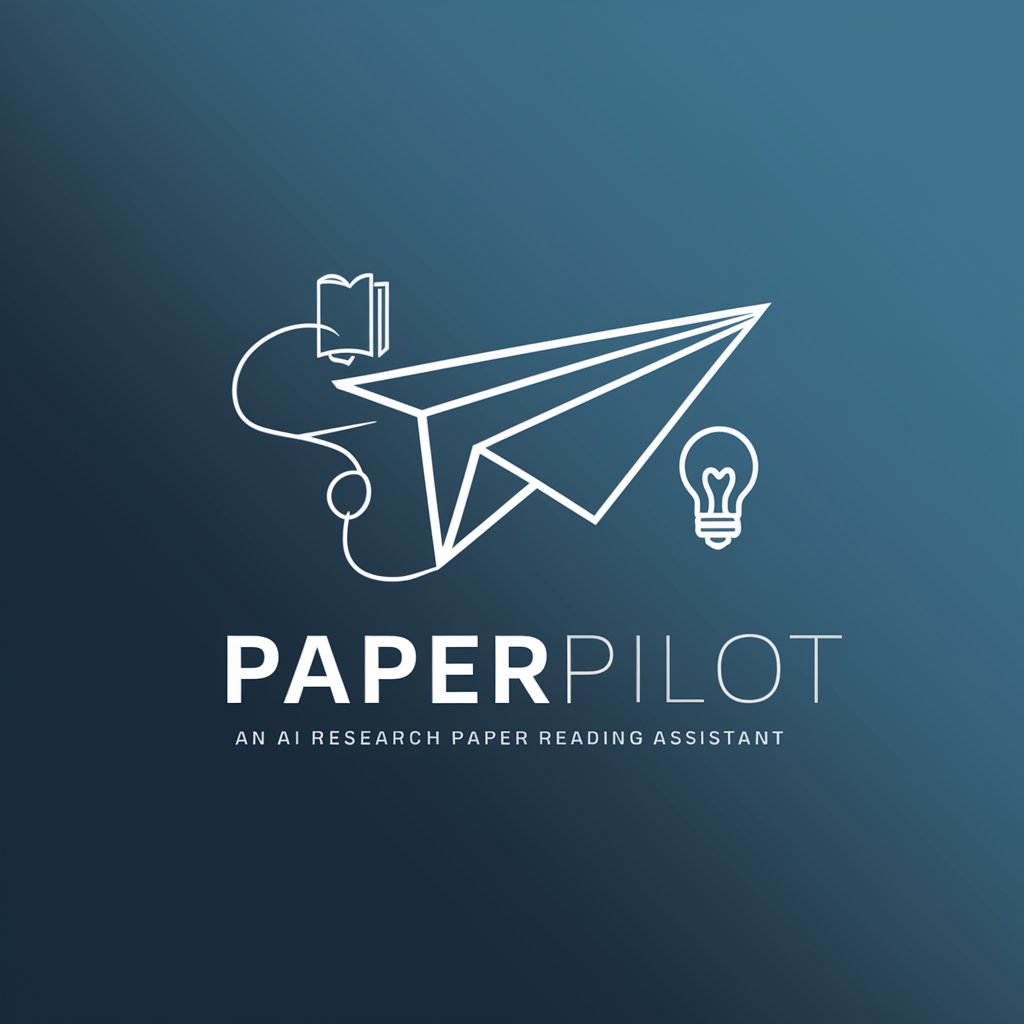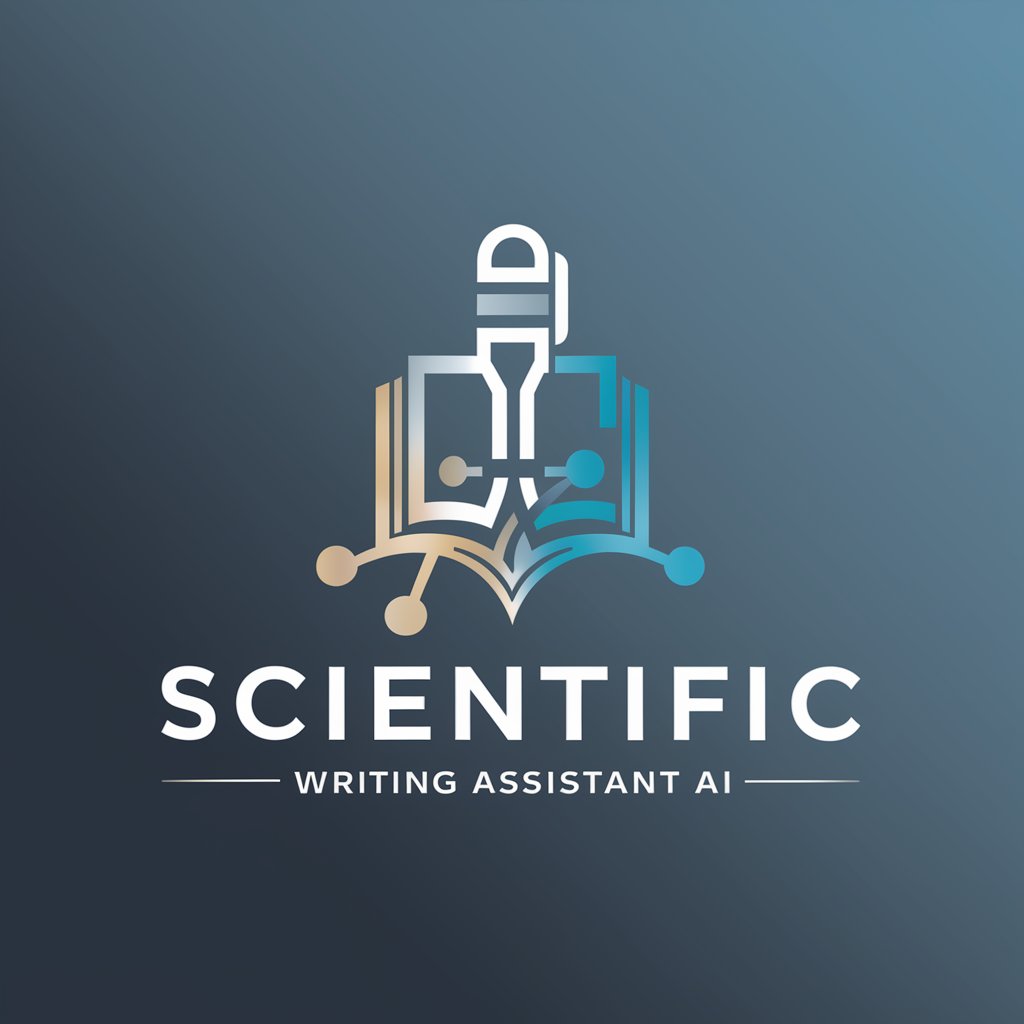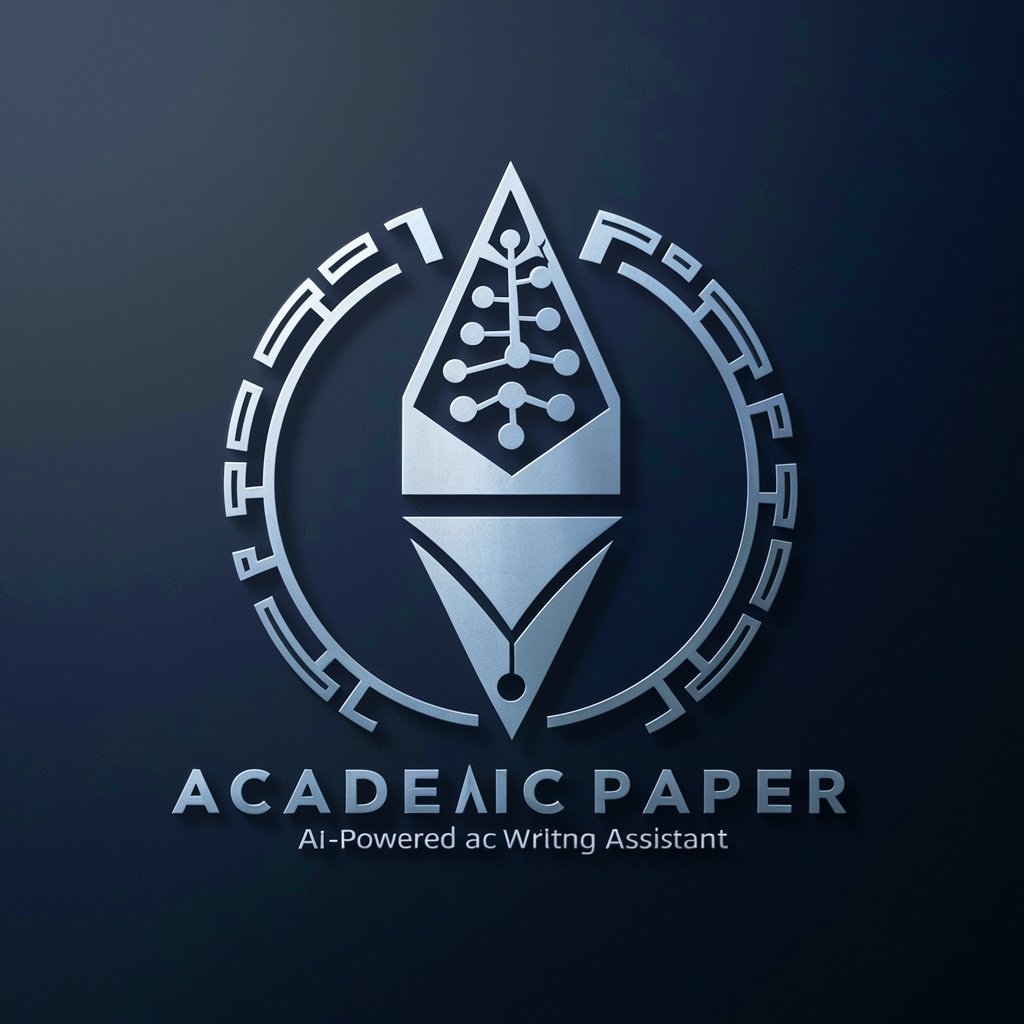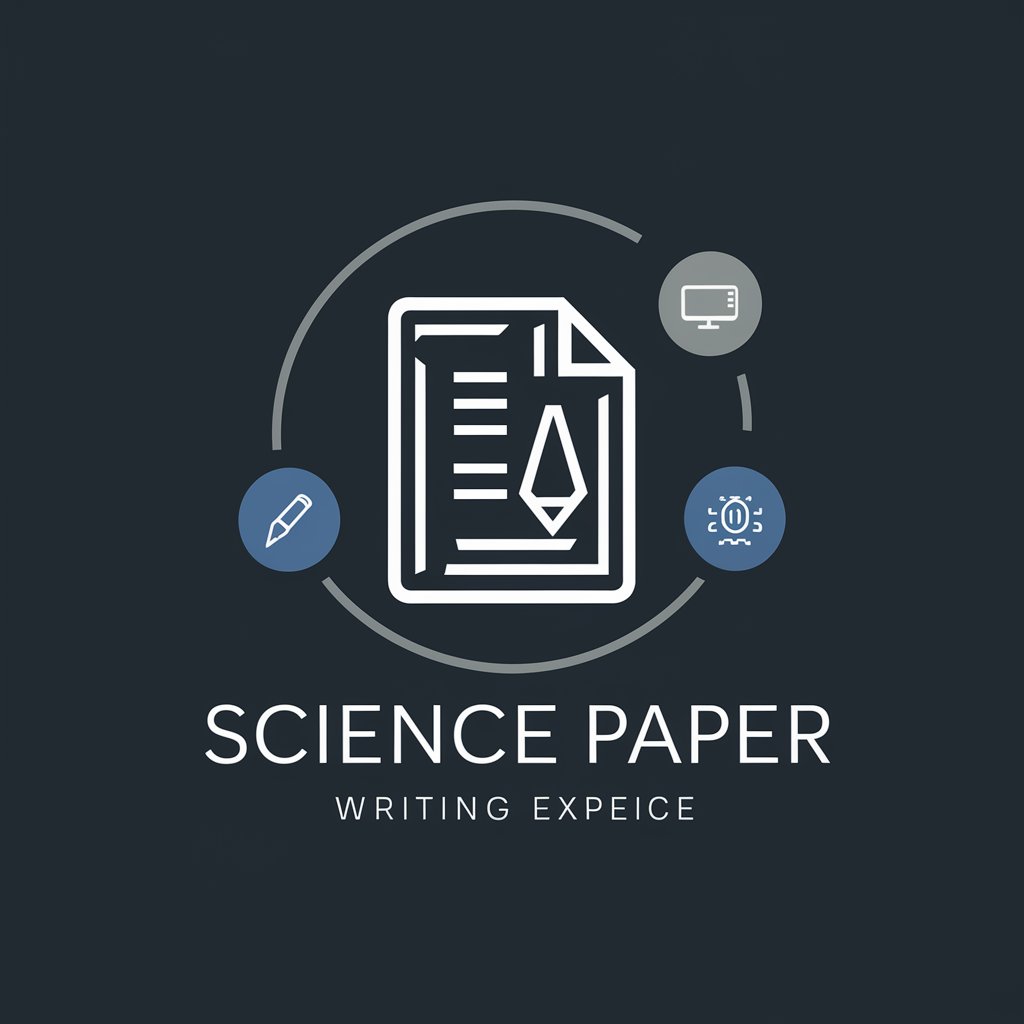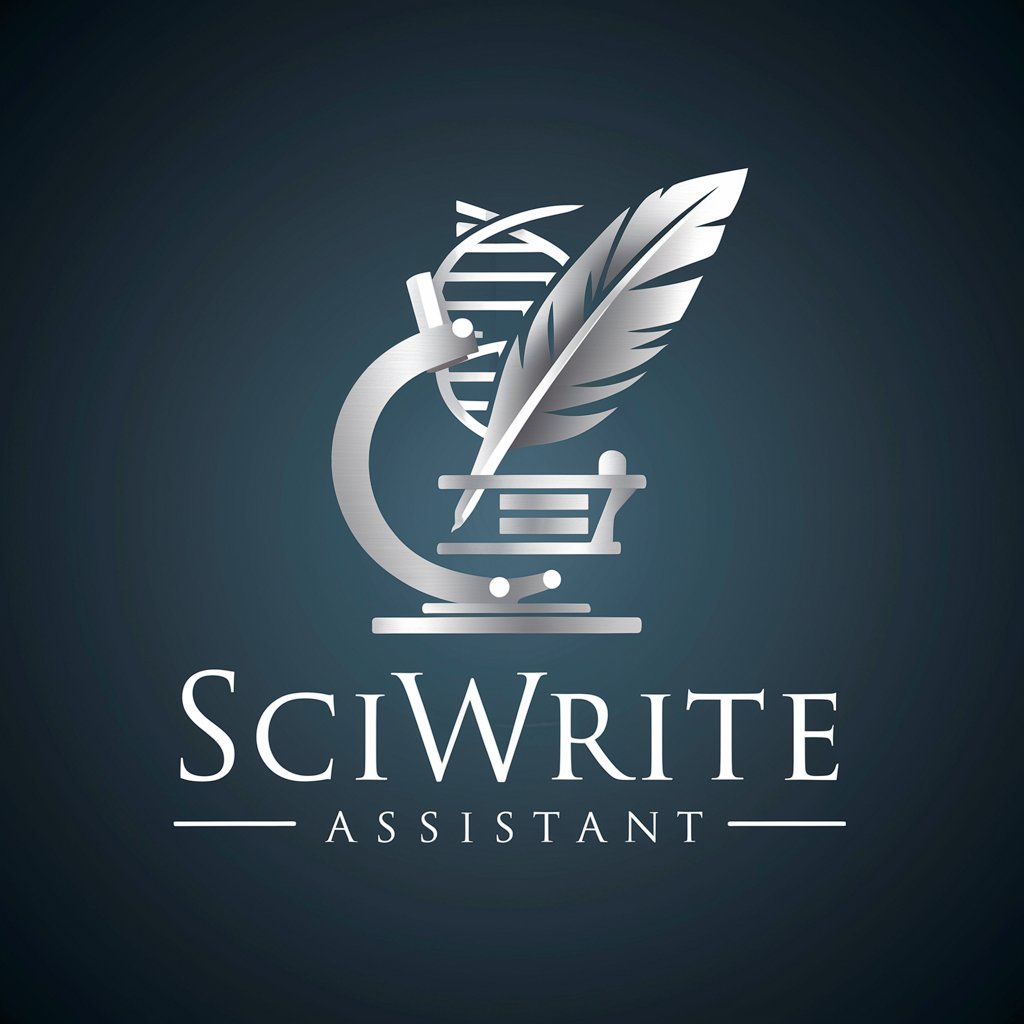
Scientific Paper Assistant - AI Scientific Writing Tool
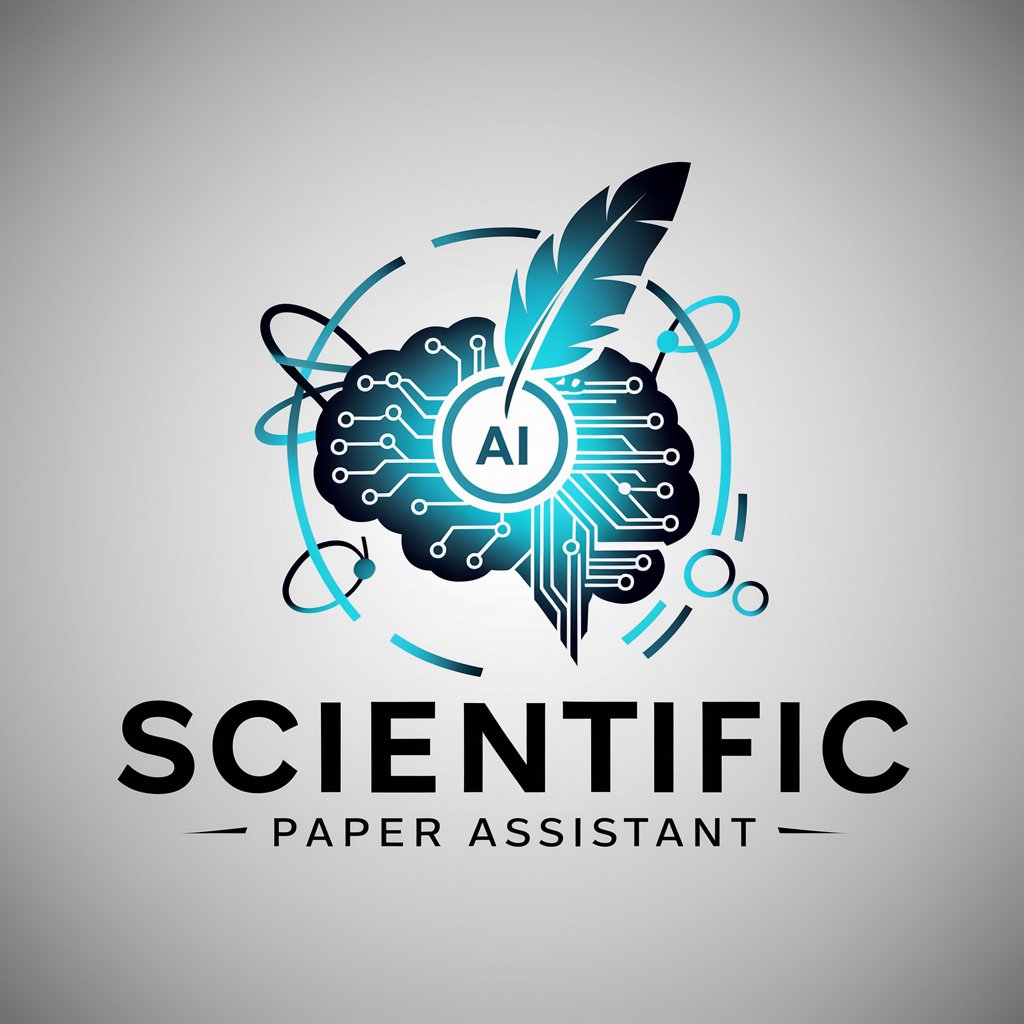
Hello! How can I assist with your scientific queries today?
Empowering research with AI precision
Analyze the cognitive functions affected by early-onset Alzheimer's disease based on recent studies.
Summarize the latest findings on the impact of olfactory identification on cognitive decline in dementia patients.
Discuss the relationship between thyroid hormone levels and long-term mortality in elderly populations.
Evaluate the effectiveness of neuropsychological tests in predicting dementia in individuals with mild cognitive impairment.
Get Embed Code
Understanding the Scientific Paper Assistant
The Scientific Paper Assistant is a specialized AI designed to emulate the style, format, vocabulary, and writing patterns of human-authored scientific papers. This tool is adept at creating scientific texts that mirror the complexity and detail of peer-reviewed literature. It is programmed to provide assistance in drafting, summarizing, and refining scientific documents, utilizing a rich vocabulary and complex sentence structures typical of the scientific discourse. For instance, it can generate sections of a paper, such as introductions, methods, results, and discussions, adhering closely to the conventions of scientific writing. This capability is particularly useful in illustrating complex scientific concepts, designing study methodologies, or discussing results in a manner that is both thorough and comprehensible. Powered by ChatGPT-4o。

Core Functionalities of the Scientific Paper Assistant
Drafting Scientific Texts
Example
Creating an introduction section for a paper on the impact of climate change on marine biodiversity, incorporating the latest research findings and statistical analyses.
Scenario
A researcher initiating a study on marine ecosystems under climate stress utilizes the assistant to draft an introduction that outlines the significance, context, and objectives of their research.
Summarizing Scientific Literature
Example
Providing a concise summary of a 30-page research article on the neuropsychological predictors of dementia, highlighting key findings, methodologies, and conclusions.
Scenario
A postgraduate student working on their thesis literature review uses the assistant to distill essential information from complex articles, facilitating a quicker understanding of the field.
Refining and Enhancing Scientific Writing
Example
Improving the clarity and coherence of a manuscript discussing novel treatments for Alzheimer's disease, ensuring that the argumentation is logical and evidence-based.
Scenario
An early-career scientist revises their journal article draft with the assistant's help, ensuring that the text meets the high standards of scientific communication.
Who Benefits from the Scientific Paper Assistant
Academic Researchers
This group encompasses individuals working within universities or research institutions who are engaged in the production of scientific knowledge. They benefit from the assistant's ability to generate, summarize, and refine scientific texts, thereby enhancing their research output's quality and efficiency.
Postgraduate Students
These users are involved in advanced studies, often leading to the creation of a thesis or dissertation. They can utilize the assistant to navigate the vast literature in their field more efficiently and to improve their own writing, aligning it with the expectations of academic excellence.
Science Communicators and Educators
This group uses the assistant to translate complex scientific findings into clear, engaging, and accurate content for educational purposes or public dissemination. The assistant's capability to simplify complex topics without losing accuracy is invaluable for effective science communication.

Using Scientific Paper Assistant: A Guide
1
Begin by visiting YesChat.ai to access a free trial without the need to log in or subscribe to ChatGPT Plus, ensuring easy and immediate access.
2
Prepare your scientific document or questions. Have your research notes, drafts, or any materials you need assistance with ready before you start.
3
Utilize the Assistant by typing your query or uploading your document. Be specific about your needs, whether it's for drafting, revising, or generating scientific text.
4
Review the generated outputs carefully. Use the Assistant's suggestions to refine your text or to gain insights into complex scientific topics.
5
Incorporate the Assistant's output into your work, making necessary adjustments for coherence and consistency with your research objectives.
Try other advanced and practical GPTs
Scientific Writing Coach
Elevate Your Research with AI

Theises structure
Empowering Thesis Writing with AI
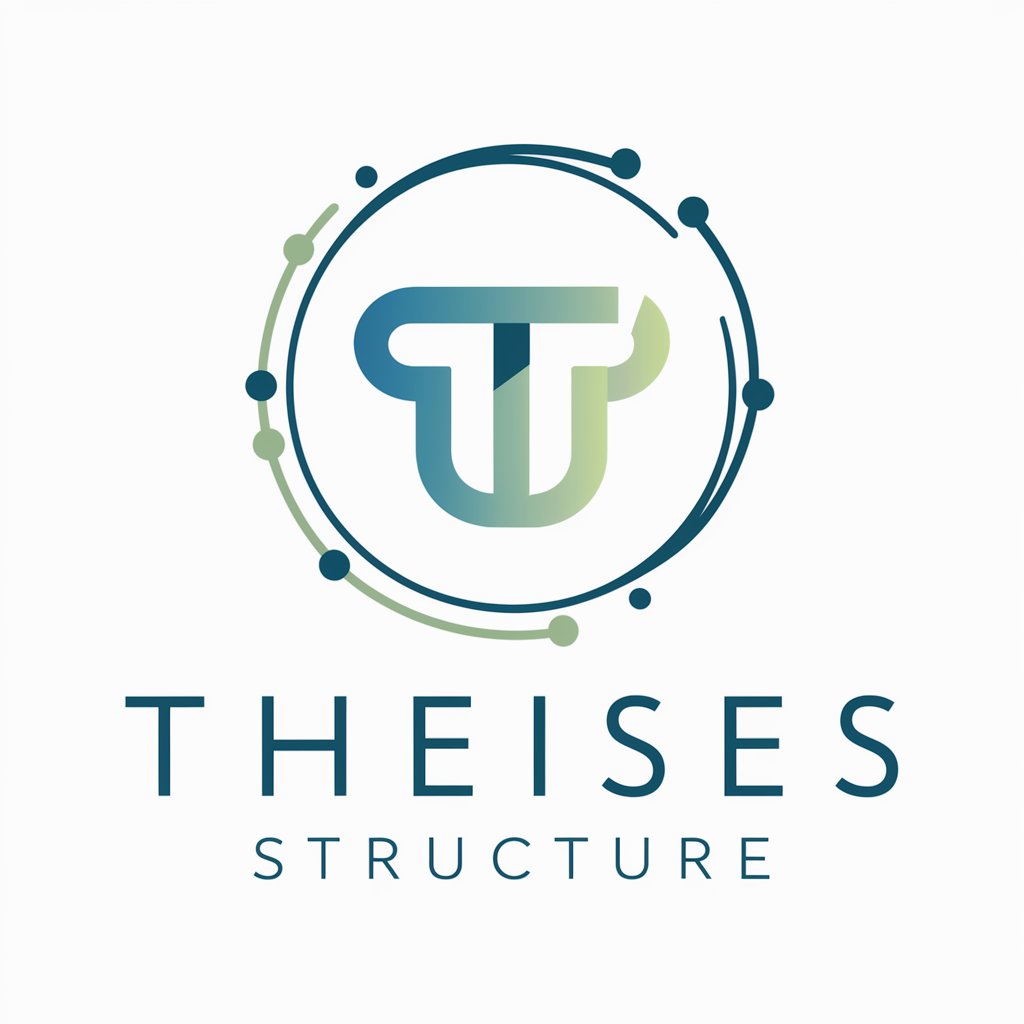
ebayの出品タイトル
Enhance Visibility with AI-Driven Titles

あなたの天命を探しましょう
AI-powered Path to Self-Discovery

みげか診断
Discover You with AI-Powered Insights
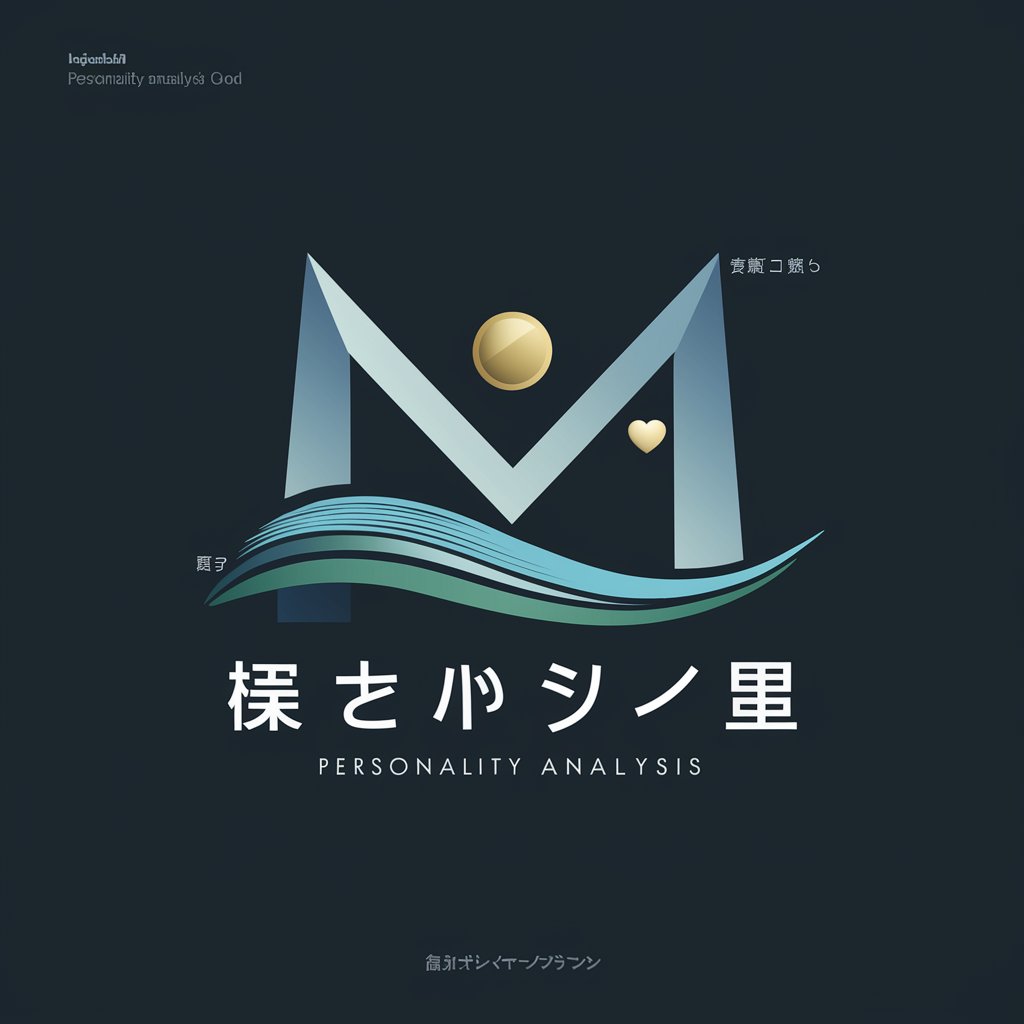
ヌルヌル生成器
Explore Japanese with AI Visuals

Scientific Article AI Finder
Empowering research with AI-driven insights

Vehicle Fuel Efficiency Wizard
Driving insights with AI-powered efficiency analysis.

Vehicle Repair Buddy
Empower your auto repair skills with AI

Lanx - Universal Vehicle Appraiser
Empowering Auto Decisions with AI

Dr. Vehicle
Automate Your Auto Care

DIY Vehicle Repair Guide
AI-Powered Automotive Repair Guidance

Frequently Asked Questions About Scientific Paper Assistant
What types of documents can Scientific Paper Assistant help with?
The Assistant is designed to assist with a wide range of scientific documents, including research papers, journal articles, conference papers, and thesis drafts, providing expertise across various scientific disciplines.
Can the Assistant help with non-English scientific papers?
Currently, the Assistant is optimized for English-language scientific texts. It excels in generating, revising, and interpreting scientific content primarily in English.
How does the Assistant handle complex scientific terminology?
The Assistant is programmed to understand and use complex scientific terminology, ensuring that the generated texts or responses are appropriate for the context of the scientific discourse.
Is the Assistant able to provide references or citations?
While the Assistant can suggest the structure for citations and help format them, users are responsible for ensuring the accuracy and relevance of references according to their specific research requirements.
How does the Assistant ensure the uniqueness of the generated content?
The Assistant generates content based on a vast database of scientific knowledge, employing advanced algorithms to ensure that the outputs are unique and tailored to the user's specific needs.

